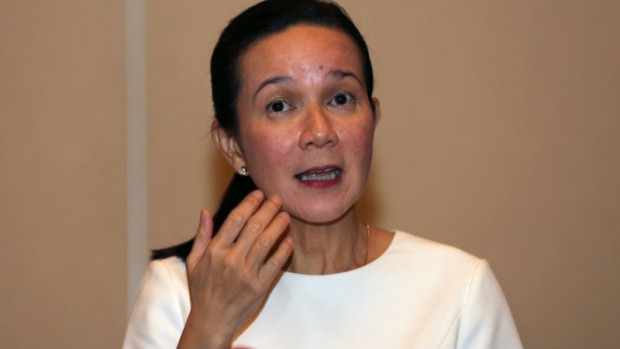IN A 150-PAGE comment on the certiorari case filed by Rizalito David, Sen. Grace Poe’s lawyers asked the Supreme Court to affirm the Senate Electoral Tribunal’s (SET) ruling that she was a natural-born citizen and thus qualified to run for senator during the 2013 elections.
Poe’s lawyers, led by Alexander Poblador, said the SET majority did not commit any grave abuse of discretion as they reached their decision “without citing any political or emotional considerations and relying solely on the Constitution, applicable law and jurisprudence.”
The SET majority, according to the comment, had “sound bases” in rendering its decision while David failed to substantiate his allegations of personal or political considerations on the part of the majority.
David, even before the SET began its hearings, should have moved for the inhibition of the senators which he claimed to be biased in favor of Poe or who have close relationship with her, the majority said.
The inhibition of three SET justice-members from the David suit and the retirement of another magistrate, Justice Martin Villarama, on Jan. 16 means only 11 justices—of which seven will comprise a majority—will be conducting the oral arguments on the case on Jan. 19.
After the SET denied David’s motion for reconsideration, the tribunal’s three justice-members who voted against Poe—Antonio Carpio, Arturo Brion and Teresita Leonardo-De Castro—said they would inhibit themselves from the case should David elevate it to the high court.
David filed the certiorari suit at the Supreme Court last Dec. 14. At the special en banc session held by the court two days later, the three justices no longer took part in the deliberations for and the issuance of a resolution requiring the respondents in David’s suit—SET and Poe—to submit their comments within 15 days.
Exclusive judge
The senator’s camp said the ruling of the SET, which is the sole and exclusive judge of qualifications of a senator, was already final and may no longer be reviewed or reversed by the high court as David “woefully failed” to show any grave abuse of discretion.
“[David’s petition] should be denied, and due respect given to the exclusive jurisdiction of the SET to decide the issue of Senator Poe’s citizenship qualification posed before it, especially considering that [he] absolutely failed to prove grave abuse of discretion, but at most, errors of judgments allegedly committed by the SET, which is beyond review even by this honorable court,” the comment stated.
“A becoming regard for its constitutional jurisdiction dictates that for as long as the SET makes a decision with clear basis, not motivated by partisan considerations, any perceived error, imagined or real, should not be the subject of review, much less of corrective certiorari jurisdiction,” it added.
The senator’s camp added that the Constitution itself “mandates the composition of the SET to be partly political, and its members are allowed, and have full and complete authority, to take into account policy considerations and the will of the people in their vote.”
However, the comment noted, the votes of the senators who are members of the SET “transcended party lines.”
“For [David], because most of the senator-members are not lawyers, they should have deferred to the three justice-members’ interpretations, which should be controlling and given more weight. [He] essentially ascribes infallible wisdom on the unelected members of the SET, conveniently disregarding the wisdom of elected members when it suits his purpose,” Poe’s camp added.
People’s mechanism
Poe’s lawyers also pointed out that by approving the current Constitution which provided for a predominantly legislative membership of an electoral tribunal, “the people provided for a mechanism whereby their opinion on the issues may be taken into consideration, through representatives who enjoy their direct mandate, and whose decision would reflect the collective judgment of the sovereign people.”
They added that the SET’s decision was not made legally infirm simply because certain members took into account what David claimed to be nonlegal considerations in casting their votes.
Poe’s camp also opposed David’s plea for the issuance of a temporary restraining order or writ of preliminary injunction against the SET ruling.
“[The SET’s] determination should be respected, and no reason, urgent or otherwise, exists in the meantime to prematurely deprive the people of their representation on the basis of one man’s persistent doubt,” the comment stated.
